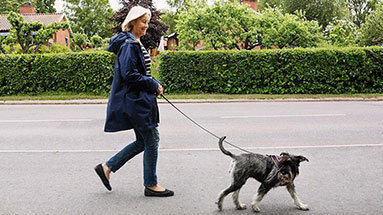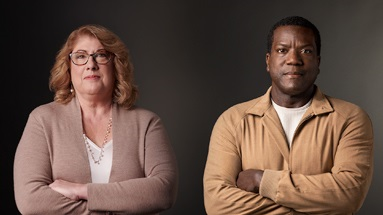Navigating the unique challenges of early-onset cancer
Navigating the unique challenges of early-onset cancer

We tend to think of cancer as something that happens later in life. And in fact, in the United States, the average age for diagnosis is 66.
But for some people, cancer can become a reality much earlier. When cancer is diagnosed between ages 18 and 49, it’s known as early-onset cancer. And in recent years, rates of certain cancers have been rising among younger people.
Every cancer journey has its particular challenges. But the experience of living with cancer as a young adult is likely to be very different from that of a person in their sixties, seventies, or older.
If you’re living with early-onset cancer, you might be in the prime of your career. You might be saving money for your future. You might be raising a family (or thinking about starting one). Cancer may come as a shock that upends these and other life plans.
Whatever your age, it’s important to know that there’s support for you. This can help you learn about what your journey might look like. Building this awareness may help you make decisions about your treatment and lifestyle, and help you come to terms with your new life.
If you’re living with early-onset cancer, here are some Microsteps that can be taken to help you navigate early-onset cancer. As always, speak with your care team for the guidance and recommendations that are best for you.
Joining a support group for people living with early-onset cancer.
Connecting with people in your age group who are on a similar journey can be important. There are many in-person and online support groups for young adults living with cancer, as well as events like CancerCon. Your care team may be able to provide recommendations, too.
Following the stories of people in your age group living with cancer.
Some young people with cancer have shared their journeys in blogs and books, and reading about them may provide practical guidance and emotional connection. You may even be inspired to document your own journey, either to look back on yourself or to share with others.
Finding an early-onset cancer role model whose story inspires you.
Look out for interviews, memoirs, podcasts, or TED talks from an individual who has shared about their experience with early-onset cancer. Other people’s stories of resilience may be a source of strength and hope as you continue on your own journey.
Unfollowing any social media accounts that make you feel bad about yourself or your life.
You might find yourself comparing yourself to others on social media or feeling like you’re missing out. If you do, it could be a good idea to get rid of unnecessary stress by choosing carefully who and what shows up on your social media feed.
Trying a new activity that excites you and brings you joy.
At a time when life may feel at a standstill, trying something new can remind you that you still have opportunities. Try making a list of books you’ve always wanted to read, movies you’ve always wanted to see, or recipes you’ve always wanted to try.
Finding time each day to reflect on one good thing in your life.
It might feel difficult after getting a diagnosis of cancer, but remembering to feel grateful for the good in your life is important. It may help you feel stronger and more resilient as you face the reality of early-onset cancer.
Try choosing a mantra that inspires gratitude and say it out loud or to yourself in a moment of stress. It could be one you make up, or a favorite quote. For instance, this one, from Maya Angelou: “This is a wonderful day. I have never seen this one before.”
Developed with THRIVE













